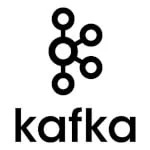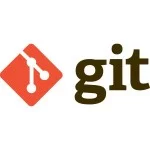Google Cloud Spanner
Google Cloud Spanner is a globally distributed, horizontally scalable relational database service provided by Google Cloud Platform. It offers the consistency of a traditional relational database with the scalability and global reach of a NoSQL database.
1. Introduction
Google Cloud Spanner boasts impressive performance and reliability metrics. Its distributed architecture ensures high availability and fault tolerance, with built-in replication and automatic failover mechanisms. Additionally, Cloud Spanner’s unique TrueTime API guarantees strong external consistency, enabling precise timestamping and ordering of transactions across the globe. These features make Cloud Spanner suitable for mission-critical applications requiring consistent and reliable performance.
Google Cloud Spanner prioritizes security and compliance, offering robust encryption-at-rest and in-transit, as well as granular access controls and auditing capabilities. It complies with various industry standards and regulations, including GDPR, HIPAA, and SOC certifications, making it suitable for use in highly regulated environments such as healthcare and finance.
1.1 Benefits and Advantages
- Horizontal Scalability: Cloud Spanner can automatically scale to handle large workloads and data volumes.
- Strong Consistency: It provides strong consistency across regions, ensuring that data is always up-to-date.
- Global Reach: Cloud Spanner allows data to be replicated globally, enabling low-latency access for users worldwide.
- SQL Support: Developers can use familiar SQL queries to interact with Cloud Spanner, making it easier to adopt.
- Automatic Backups and Maintenance: Google handles backups, updates, and maintenance tasks, reducing the operational overhead for users.
1.2 Disadvantages
While Google Cloud Spanner offers numerous benefits, it also has some limitations:
- Cost: Cloud Spanner can be expensive, especially for small-scale deployments or applications with sporadic usage.
- Learning Curve: Although it supports SQL, Cloud Spanner has unique features and concepts, which may require some learning for developers.
- Data Model Constraints: Cloud Spanner imposes certain limitations on schema design and data modeling, which may not be suitable for all use cases.
1.3 Use Cases
Cloud Spanner is well-suited for a variety of use cases, including:
- Financial Services: Applications requiring strong consistency and global replication, such as trading platforms or banking systems.
- Online Gaming: Multiplayer games that need low-latency access and real-time updates across regions.
- E-commerce: High-traffic e-commerce websites that need to handle large volumes of transactions and inventory management.
- IoT: Internet of Things (IoT) applications that collect and process data from devices distributed worldwide.
1.4 Comparison with Other Cloud Databases
Cloud Spanner offers several advantages over other cloud databases, such as:
- Amazon Aurora: While Aurora provides similar scalability and performance, Cloud Spanner offers global replication and strong consistency across regions.
- Microsoft Azure SQL Database: Azure SQL Database lacks the global scalability and consistency features of Cloud Spanner.
- Amazon DynamoDB: DynamoDB is a NoSQL database with horizontal scalability, but it does not offer the same relational model and SQL support as Cloud Spanner.
2. Conclusion
Google Cloud Spanner is a powerful database service that combines the scalability of NoSQL databases with the consistency and familiarity of SQL. With its global reach, strong consistency, and automatic scaling, Cloud Spanner is an excellent choice for applications requiring high availability and low-latency access to data across regions.
Cloud Spanner integrates seamlessly with other Google Cloud Platform services, including BigQuery for analytics, Cloud Functions for serverless computing, and Kubernetes for container orchestration. It also supports popular development frameworks and languages, such as Java, Python, and Node.js, enabling developers to leverage existing tools and skills.




